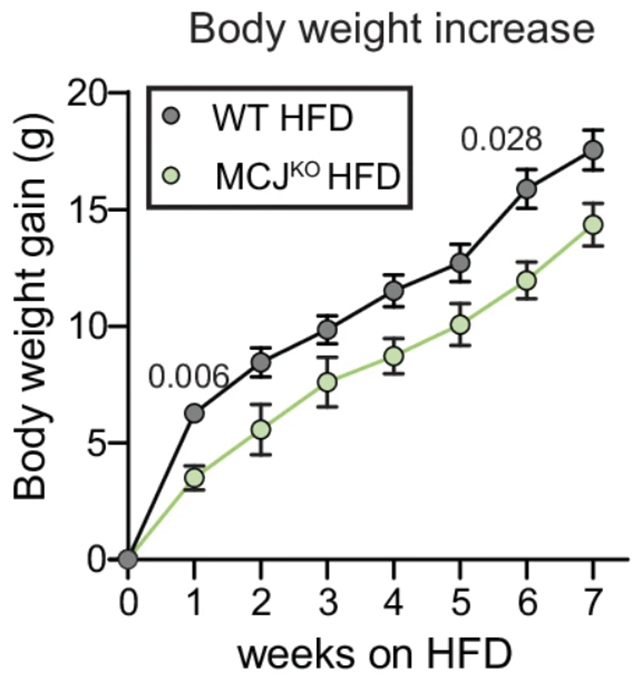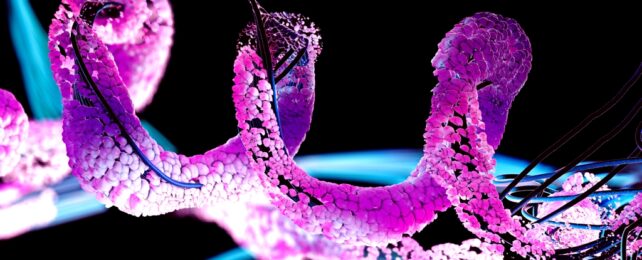Scientists are tackling society's growing obesity problem from all kinds of angles – and new research picks out a particular protein controlling how fat is burned off, which could potentially be a target for weight management drugs.
The protein is the MCJ (Methylation-controlled J) protein, and it was highlighted by a team led by researchers from the Spanish National Cancer Centre (CNIO). They also found a previously undiscovered mechanism for turning body fat into heat (a process known as thermogenesis).
Building on previous links between the MCJ protein and metabolism, the new study found more MCJ in tissue samples from obese humans and mice. In mice where MCJ production was blocked, the animals were better at staying thin and burning brown fat (adipose tissue) – the type responsible for storing and expending energy.

"Our results in humans and mice suggest that the reduction of MCJ observed in patients with obesity appears to act as a compensatory mechanism to enhance brown adipose tissue thermogenesis," write the researchers in their published paper.
In other words, lower levels of the MCJ protein mean brown fat gets burned off as heat more quickly, protecting against weight gain. Even transplanting MCJ-free brown fat into mice was enough to cause weight loss.
As well as identifying the key role played by the MCJ protein, the team also learned more about how brown fat gets used up by the body. Removing MCJ was effective even when another key thermogenesis protein, UCP1, was unmodified or absent – suggesting MCJ is regulating brown fat independently of UCP1.
"For some time, it has been thought that obesity could be prevented by getting this fat to spend more energy by generating heat," says Guadalupe Sabio, from CNIO.
"Discovering new mechanisms of heat production in brown fat is one of the most interesting targets in the study of obesity."
More research will be needed to work out if blocking the MCJ protein could be a safe treatment option for obesity, one which wouldn't damage the body in other ways – but the early findings reported here are promising.
The researchers are also keen to investigate how their discoveries could lower the risk of health conditions associated with obesity too. Carrying extra fat can cause problems all across the body, from heart disease to certain types of cancers.
Future treatments could possibly trigger changes in body fat use that protect health more generally.
"This protection is due to the activation of an essential signaling pathway to adapt to the stress caused by obesity," says biochemist Beatriz Cicuéndez, from CNIO.
"Known as the catabolic pathway, it causes an increase in the consumption of fats, sugars and proteins to produce heat in brown fat. It is a mechanism that also happens in people with very active brown fat."
The research has been published in Nature Communications.
